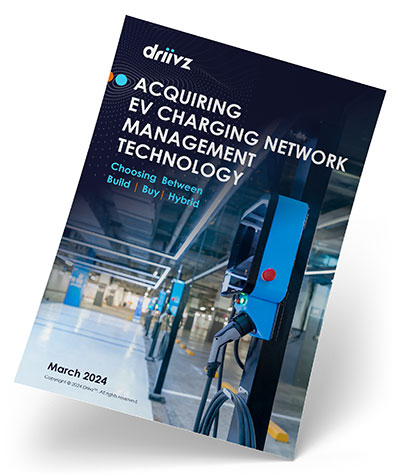As EV adoption grows, so does the need for publicly accessible chargers at a scale that is far from realized. A recent report estimates 5 million public chargers will be needed in Europe by 2030, while another analysis calls for 1.2 million public and shared chargers in California alone by 2030. Building infrastructure at this scale is a major challenge for public and private organizations alike. More important, however, will be stable, reliable charger operations – a must have for building public confidence in EV charging and overcoming “range anxiety” – and that will require optimizing EV charging at scale.

Optimizing EV charging in networks comprising tens or hundreds of thousands of charge points requires an EV charging management platform that can scale without compromising operational excellence. In this post, we’ll examine the features contributing to optimizing EV charging at scale.
Standards, protocols, and vendor-agnostic charger support
When scaling a network, operators can’t assume that the type of charger they use today will be available over time. Plus, the hardware marketplace is evolving as charging technologies change. The ability to scale requires a future-proofed platform that is compatible with hundreds of chargers as well as the current and evolving standards and protocols that make multivendor networks possible.
Solutions for a seamless and satisfying EV driver experience
EV drivers want real-time information about charger availability and pricing plus an easy way to locate chargers, make reservations and get help if it’s needed. The best practice is a white-labeled mobile app and web portal that can support hundreds of thousands of drivers easily with advanced self-service tools and an intuitive user interface.
24×7 problem identification, alerting and management
Running an EV charging network is a 24×7 operation, and it takes only one out-of-service charger to result in a one-star Google review. The ability to scale operations requires around-the-clock charger monitoring and managing, including a way for technical teams to receive and respond to problem alerts 24×7. Having processes in place such as problem resolution guides that clearly outline steps to be taken can help speed resolution.
Proactive, automated issue resolution
Up to 80% of issues with chargers, such as failure to reset after a charge, can be handled remotely. Another best practice is to combine continuous charger status monitoring with artificial intelligence to automate the process of issue resolution. Advanced algorithms can be trained to resolve issues proactively and report the results to management software. This capability can help an operator to scale a network and maintain reliable operations without adding new field service staff in an already-served location.
Insights-driven dashboards with no data limitations
Managing a large network and scaling for growth requires data and analytics-driven insights to empower decision-makers, whether that is data about business operations, network operations, or real-time insights into driver charging history, transactions and more. Plus, operational data helps technical leads keep the network running smoothly as it grows.
Flexible billing operations with EV roaming
Billing is never a one-size-fits-all proposition, nor can any one network meet all driver requirements. Look for an EV charging management solution that can handle multiple billing plans and support multiple business models, from memberships to pay-as-you-go. For operational excellence at scale, a billing plan must also accommodate peak charging and variable energy costs as well as settlements across multiple network providers and EV roaming hubs.
Customizable solutions designed for large-scale EV charging networks
Some network operators scale by building infrastructure and expanding to new cities or countries. Others grow by acquiring other EV charging networks. Either way, operational excellence requires a platform built for international, large-scale EV charging networks and flexible enough to adapt to changing business requirements. For scalability, a platform should offer easy onboarding of new locations and acquisitions as well as seamless integration with other business systems.
EV charging optimization at scale supports EV adoption
As we noted earlier, range anxiety is a significant inhibitor to EV adoption. As batteries improve, range anxiety is giving way to charging anxiety – the concern that a driver will be caught on the road needing a charge but unable to find a functioning charging station. Scaling the charging infrastructure ahead of demand can help address charging anxiety and pave the way for EV adoption. However, that infrastructure must be optimized for reliability and availability – a requirement that the right EV charging management platform can address.




